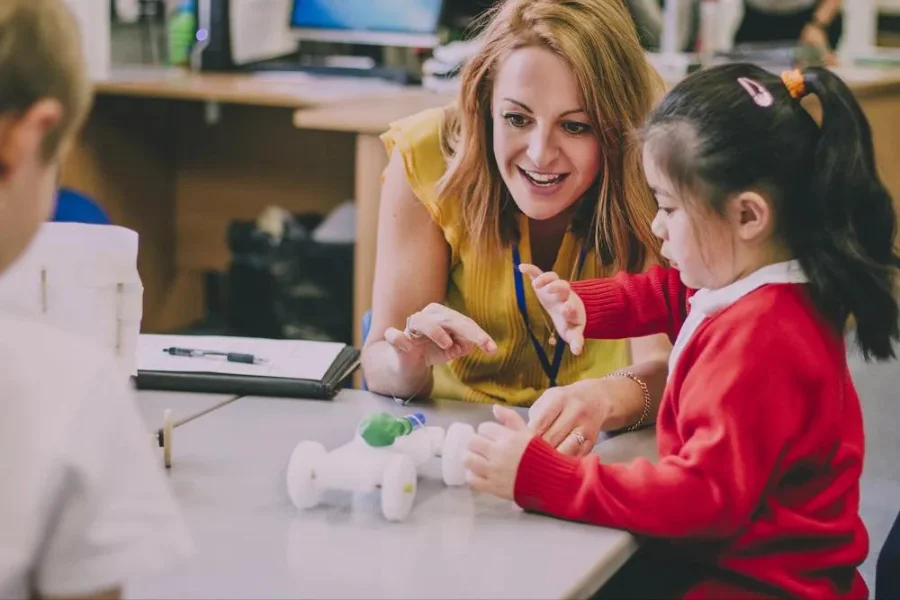Kinds of Learning Disabilities

Source: edu
Kinds of Learning Disabilities
Learning disabilities are diverse and can meaningfully influence a person’s capability to procedure, comprehend, and express knowledge. In this article, we will discover the numerous kinds of learning disabilities, flaking the spotlight on what way they impact knowledge and routine life. This indulgence is critical for teachers, parents, and students themselves, as it indicates improved support techniques and an additional comprehensive learning atmosphere.
Whether it’s challenges in interpretation, script, mathematics, or other reasoning procedures, each type of learning disability offers its own set of hurdles. Identifying and recognizing these alterations is the foremost step in the direction of providing operative support and nurturing an atmosphere where each student can flourish.
Table of Content

Source: teachervision
What are Various Kinds of Learning Disabilities?
Learning disabilities are neurological sicknesses that impact various parts of learning. Accepting the kinds of learning disabilities is critical for initial interference and operative help.
Here, we’ll discover different types of learning disabilities, their characteristic signs, and how they affect personalities:
Dyslexia
This is one of the most common kinds of learning disabilities. Dyslexia primarily affects reading skills. Typical signs include difficulty in recognizing words, slow reading speed, and challenges in understanding what one reads. It may also affect spelling and writing.
Dysgraphia
This learning disability impacts writing abilities. Symbols of dysgraphia contain deprived handwriting, misfortune with spelling, and trouble in establishing opinions on paper. Persons with dysgraphia frequently have a hard time holding a pencil properly and fight with a lucidly written appearance.
Dyscalculia
This type of learning disability pertains to difficulties in math. Individuals with dyscalculia brawl with basic mathematics concepts, and take time to understand, use money, and problem-solve in arithmetic concepts.
Auditory Processing Disorder (APD)
APD affects how sound is processed and understood. Those with this syndrome might struggle to differentiate between various sounds or accept spoken language. It’s not about hearing damage but how the mind understands sounds.
Visual Processing Disorder
This disorder impacts the ability to interpret visual information. It can be marked as exertion in understanding instructions understood on paper or a panel, unique amongst alike-looking letters or statistics, or difficulties with altitudinal location.
Non-Verbal Learning Disabilities
This category of learning disabilities affects non-verbal cues. Individuals might struggle with motor coordination, complex problem-solving tasks, and social skills. Multi-tasking, forming friendships, and easy physical movement are the aspects that children with non-verbal disabilities cannot manage.
Attention Deficit Hyperactivity Disorder (ADHD)
Though primarily known as a behavioural disorder, ADHD can significantly affect learning.
Dyspraxia (or Developmental Coordination Disorder)
Dyspraxia affects fine and gross motor skills. Signs include difficulty in tasks like writing, buttoning shirts, or engaging in sports. It often coexists with other kinds of learning disabilities.
Language Disorders (e.g., Aphasia, Dysphasia)
These disorders involve difficulties with language skills, particularly speaking and understanding spoken language. Signs can include a limited vocabulary, inability to form sentences correctly, or challenges in understanding others.
Each of these kinds of learning disabilities presents unique challenges. Identifying the signs early is key to providing the right support and accommodations. By understanding the various kinds of learning disabilities, educators and parents can better assist those who struggle with these challenges, creating a more inclusive and supportive learning environment.
Get hands-on details on our Learning Disability Course via Call / Whatsapp at +919321024137 / +919869866277.
For additional information about the Learning Disability Course brochure, Click Here.

Source: learningpolicyinstitute
How is Assessment of Learning Disability Conducted?
Different Learning Disabilities have different symptoms which need to be addressed singularly. This implies that to assess learning disabilities one needs to have a thorough understanding of the different strategies and methods. This blog throws some light on the procedure of how is the assessment of learning disability conducted and the different approaches applied for conducting the assessment.
Formal Assessment Methods
These methods include well-defined tests with a standardized procedure and steps curated by qualified trained professionals covering the cognitive and academic functioning arenas.
Key components include:
Psych educational Assessments
These are comprehensive evaluations that include IQ tests and academic achievement tests.
Neuropsychological Tests
These assess various aspects of brain function, including memory, attention, problem-solving, and language skills.
Speech and Language Evaluations
To identify difficulties in language processing, which can be a component of learning disabilities.
Formal assessments are pivotal in the educational development of the child giving teachers insight into where to start the desired interventions.
Informal Assessment Methods
Informal methods measure student learning and progress and refrain from using standardised grading criteria. They are crucial for the early identification of potential learning issues.
These methods include:
Observational Checklists
Observing the child in different settings (like at home and school) and noting behaviors that might indicate a learning disability.
Interviews and Questionnaires
Conversing with those who interact with the child regularly to gather insights into their learning behaviors and challenges.
Review of Schoolwork
Analyzing patterns in the child’s school performance can reveal areas of difficulty.
The significance of informal assessments lies in the vital information it provides parents and educators for early identification and interventions which helps them to seek formal evaluations.
Early Assessment and Diagnosis
Early valuation of learning infirmities is critical as it permits timely interference, which can meaningfully recover educational consequences. Parents and educators play an important role in this early identification procedure. They may use relaxed assessment gears, such as specifications, to observe developmental milestones and classify any abnormalities.
Key areas to focus on include:
Reading Skills
Difficulties with basic reading and language skills.
Writing Skills
Problems with spelling, grammar, and organizing thoughts on paper.
Mathematical Abilities
Challenges in understanding basic math concepts or solving problems.
These observations can then be used to decide if a formal assessment is necessary.
Get hands-on details about our Learning Disability Course via Call / WhatsApp at +919321024137 / +919869866277.
To get your queries solved about the Learning Disability Course brochure, Click Here.
Importance of Accurate Assessment
The precise assessment of learning disabilities is critical for numerous details:
Tailored Educational Plans
It helps in creating individualized education plans (IEPs) that cater to the specific needs of the child.
Resource Allocation
Schools can allocate resources and support services more effectively.
Parental and Teacher Guidance
It provides a roadmap for parents and teachers on how to support the child’s learning needs.
Kinds of Learning Disabilities
Understanding the kinds of learning disabilities is integral to the assessment process.
Common types include:
Dyslexia
Difficulty in reading, including challenges with word recognition, decoding, and spelling.
Dysgraphia
Issues with writing, including handwriting, spelling, and organizing ideas.
Dyscalculia
Difficulties in understanding numbers and mathematical concepts.
Auditory and Visual Processing Disorders
Problems in processing auditory or visual information.
Each category of a disorder requires a designated assessment approach to achieve a precise diagnosis and a suitable intervention plan.
To get a clear idea of what learning issues a child is facing the assessment of learning disabilities is a must. The combined use of formal and informal methods will ensure that the diverse educational needs of every child are met efficiently. Formal methods are extremely helpful for getting exact information about a child’s specific learning problems. Informal methods such as observations by parents help with early identification and giving early support.
Remember, the kinds of learning disabilities vary, and each requires a nuanced approach for accurate assessment and intervention. By understanding and effectively implementing both formal and informal assessment methods, educators, parents, and caregivers can ensure that children with learning disabilities receive the support they need to succeed academically and personally.
“Join Vidhyanidhi’s Learning Disability Course for a transformative journey in education!”
Get hands-on details on our Learning Disability Course via Call / WhatsApp at +919321024137 / +919869866277.
To know more about the Learning Disability Course brochure, Click Here.
FAQs
How do you Study with a Learning Disability?
Studying with a learning disability involves personalized strategies, patience, and support from specialized educators and resources.
Is Diploma in Learning Disabilities Course Available?
Yes, a Diploma in Learning Disabilities is available and offers comprehensive training for educators in special needs education.
What is SLD in Special Education?
SLD in Special Education stands for Specific Learning Disabilities, referring to challenges in reading, writing, and math skills.




